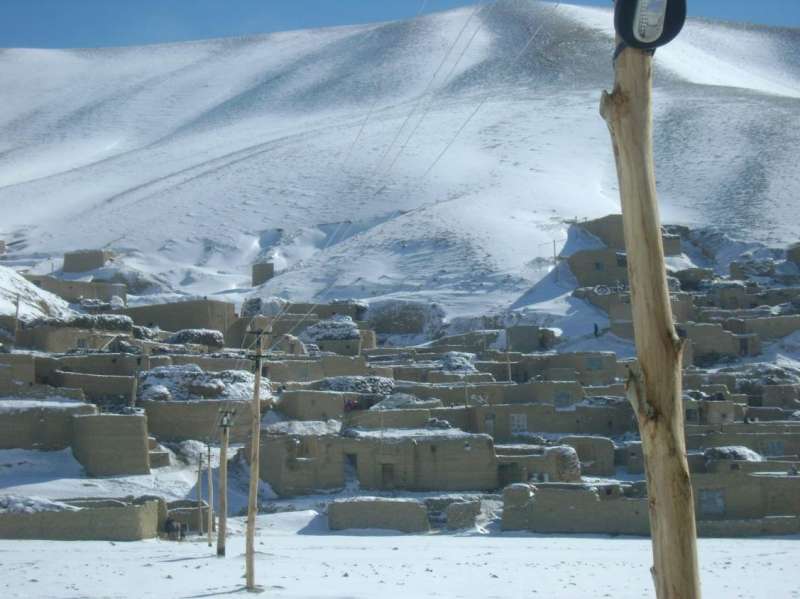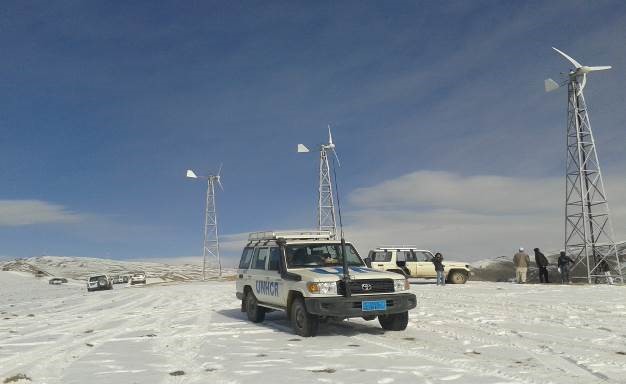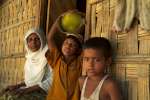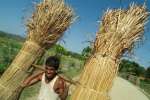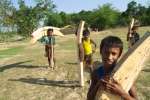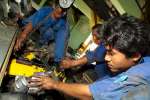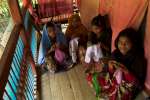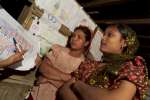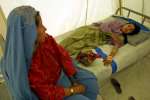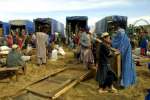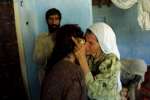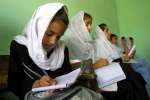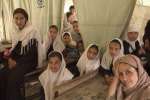- Text size
 |
|  |
|  |
| 
- عربي
Wind power project helps Afghan refugees rebuild lives in shattered village
News Stories, 28 July 2015
AQRABAT, Afghanistan, July 28, (UNHCR) – Bathed by constant winds from the majestic Hindukush mountains, the remote village of Aqrabat in Bamyan district, central Afghanistan, was for many years known as "Ergha-baad" (gentle wind) by locals.
Now as a result of modern technology, the town is capitalising on its ancient name.
After anti-government elements attacked and razed Aqrabat to the ground in 1999, it was abandoned. Lying empty, it was hard to imagine the village could ever again return to its former self. However, more than a decade later -- thanks to UNHCR's voluntary repatriation programme -- 359 families now call it home.
What many of them most needed upon their return was power to rebuild their lives and convince others to join them. An early solar project was not maintained. As more returnees arrived, they had to fall back on traditional methods, like lanterns and fires.
After assessments conducted by UNHCR and the local Directorate of Refugees and Repatriation, the wind from the Baba mountains, part of the Hindu Kush range, was seen as the perfect solution.
Aqrabat village, located 25 km northwest of Bamyan town, enjoys on average winds of between 7-15 km/h most of the day. With support from the Government of South Korea, UNHCR was able to support construction of a wind power plant and improve villagers' access to clean and sustainable energy.
Construction of wind-powered turbine facilities began in 2014, under a partnership agreement established between the Central Afghanistan Welfare Committee (CAWC) and a UNHCR Field Unit.
In January 2015, the plant was successfully completed, and officially handed over to the village Community Development Committee and local government authorities. It is the first of its kind in the entire Bamyan province, with a generation capacity of between 15-25 kB.
Rahima, a local woman, told UNHCR: "Everything depends on the wind and in the absence of wind, villagers will still have three days of reserve electricity. But that is almost impossible that there will be no wind within three days, because this is Aqrabat."
Newly empowered, with access to clean, reliable and sustainable energy, the future for Aqrabat returnees looks bright – able, at last, to restart their lives and live them to the full.
"This wind energy project is more than just a reliable source of power," said Maya Ameratunga, UNHCR Representative Afghanistan, "it is key to reintegration. As a community-driven project it has empowered returnees in making decisions about their future while allowing returnees to invest in their local economy, rebuild their community and plan for the future."
"Development solutions are needed for protracted humanitarian problems such as the Afghan refugee situation, which is the world's largest repatriation operation" stated Ms. Ameratunga, "Interventions like these help create the incentive for return of second and third generation refugees born in exile and help communities rebuild."
In the same village, UNHCR is also providing shelter, while the International Committee of the Red Cross (ICRC) has supported the construction of a pipe network for drinking water. Additionally, a local NGO, Shuhada Organisation, has built a basic health centre and secondary school.
By Ahmad Jawad Wafa, Afghanistan
